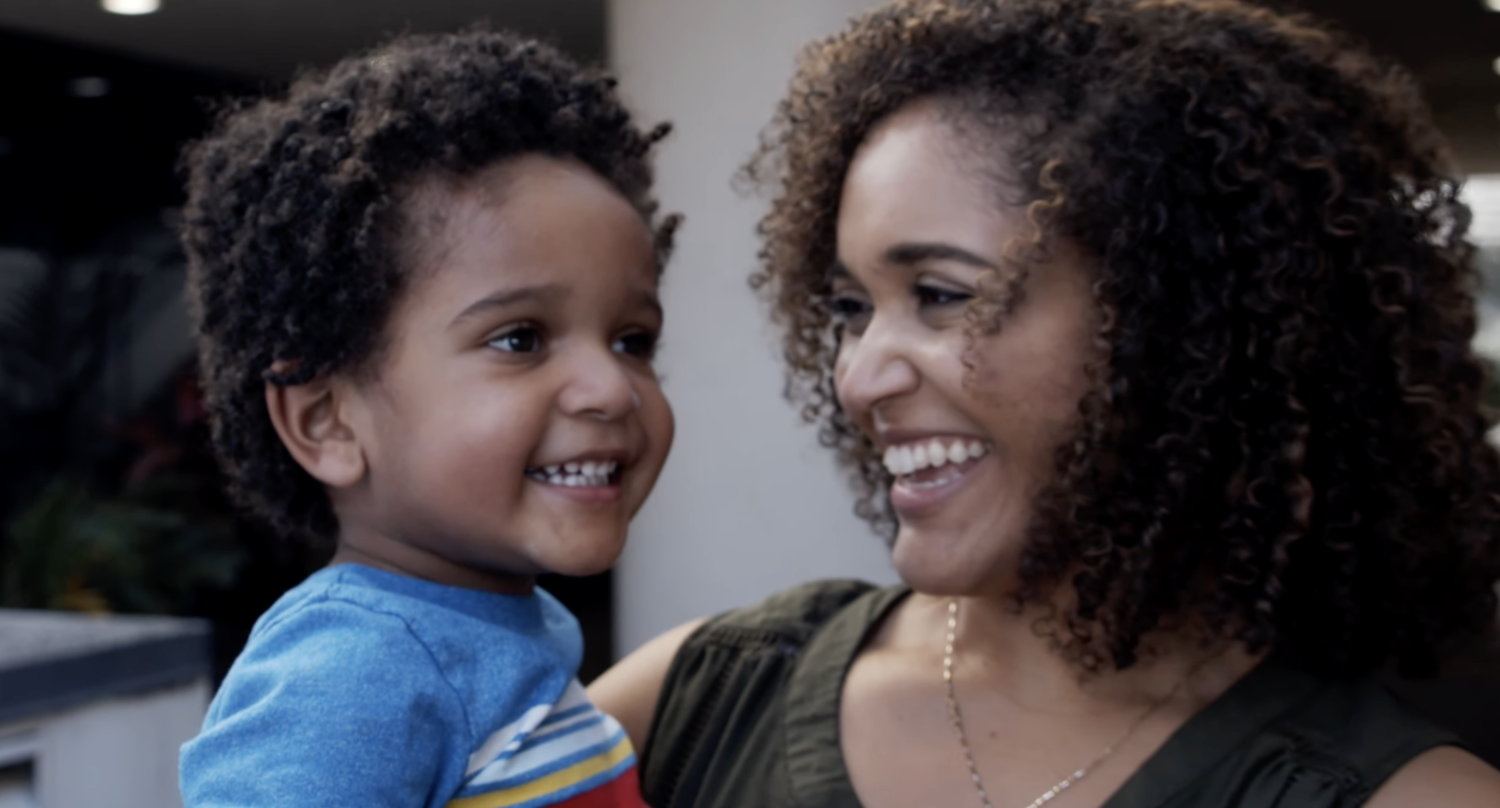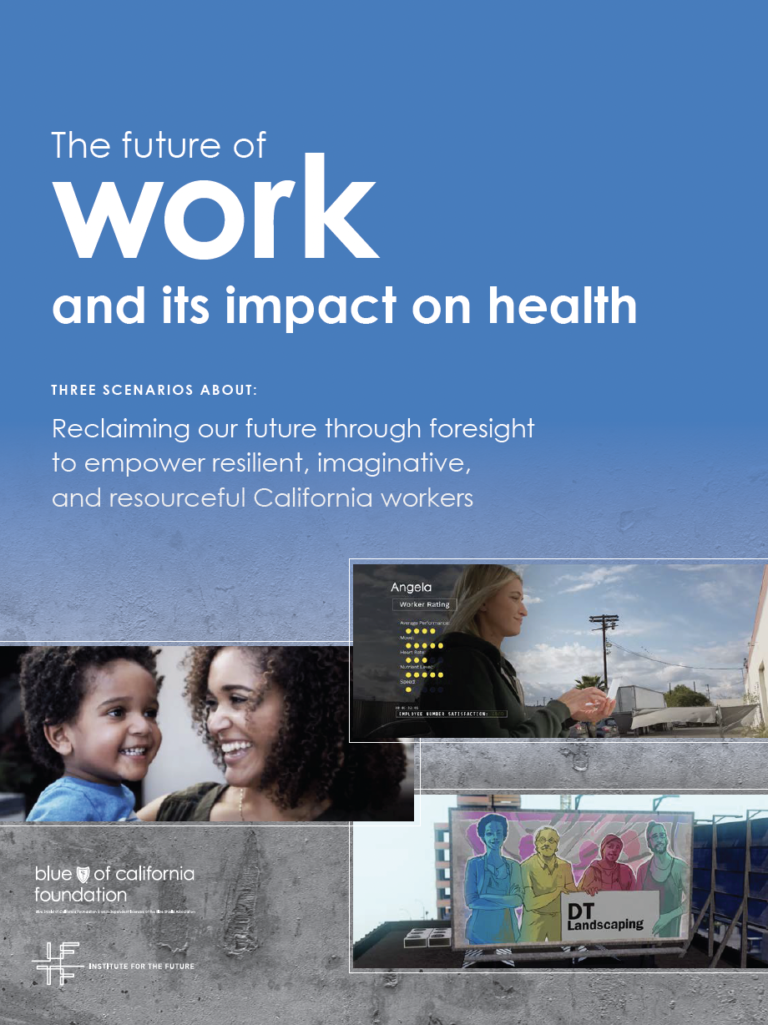In 2018, Blue Shield of California Foundation and Institute for the Future set out to explore how present and future work conditions impact the health, broadly defined, of workers, their families, and their communities. The research process was divided into 3 phases.
In Phase 1 of the research, IFTF conducted 17 informant interviews to consider a broad range of opinions on the forces informing and influencing the changing nature of work and the implications on health and economic security for California workers and their families.
In Phase 2, we implemented a human-centered approach to illuminate the consequences that the working conditions are having and will have on the health of individuals, families, and communities. We wanted to paint a fuller picture of the new health risk factors and vulnerabilities emerging alongside the growing economic insecurity. To accomplish this, IFTF undertook an ethnographic study to understand how daily life for people, families, and communities is steeped in these highly precarious working arrangements. We conducted 10 in home, in-depth interviews in the Central Valley, Los Angeles County and Inland Empire, East Bay, and Sacramento County. We recruited people, with a preference for women, people of color, and first-generation immigrants involved in care work, gig work, split shift work, and newly economically insecure due to the impacts of the fissuring of work. We also interviewed people who are experiencing homelessness and those who are commuting more than 90 minutes for work. (See Appendix for more details on recruitment, interview instrument, and high-level findings.)
In Phase 3, we created scenarios (“stories from the future”) by combining expert interviews and ethnographic interviews with IFTF’s ongoing foresight research in health, technology and work to identify the critical informing and influencing forces that are shaping the health and economic security for California workers and their families. We applied this improved understanding of the health risks and emerging vulnerabilities connected to the new work environment to inform our scenario development. The three video scenarios aimed to bring current trends and innovations to life to help people imagine what different work experiences could be like in the future depending on the actions we take, or don’t take, in the present.

